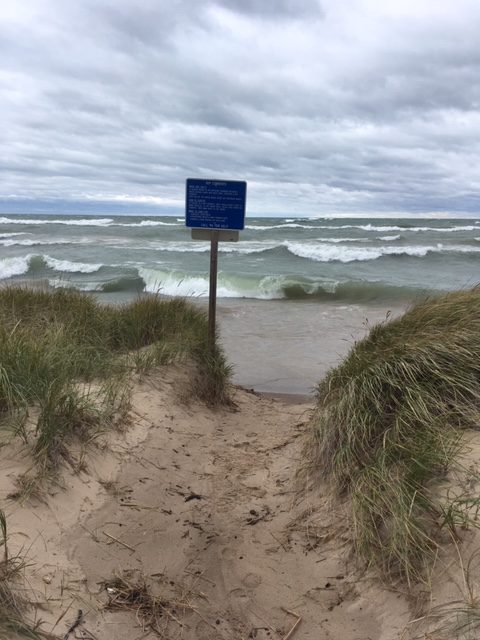By David Hoppe
Saturday was bearish. It rained and rained, waves that were ten feet or more pummeled the shore and wind made the treetops sway as if they were children in dire need of a bathroom break.
It was tempting to build a fire, turn on Netflix and curl up.
But the Michigan City Progressive Democrats had chosen this day to host a gathering of candidates running for Pete Visclosky’s seat in Congress. This is a big deal. Visclosky has represented Indiana’s First District — currently spanning all three of our lakeshore counties — for 35 years. Elected for the first time when Ronald Reagan was president, he now wants to retire. At least seven people have lined up to try and take his place.
Though not exactly a household name — I doubt there are many Hoosiers outside Northwest Indiana who could tell you who he is (that, Indiana being Indiana, is another story) — Visclosky has served his District with a common decency that’s rare in our politics. He voted against the war in Iraq, has been an untiring advocate for organized labor and played a leading role in trying to reimagine Indiana’s post-industrial lakeshore. If not for his efforts, our Dunes National Park might never have received that designation.
It’s been six years since we moved up to the First District and twice during this time I’ve received personal voicemails from Pete Visclosky, wishing me a happy birthday. Let it suffice to say that I have done nothing in particular to deserve this gesture; it, like his willingness to hold regular town hall meetings, speaks to Visclosky’s commitment, both savvy and sincere, to staying in touch with his constituents.
It was already getting dark when the candidates’ meeting started at the Nest, a storefront in Michigan City’s Arts District that doubles as a gallery and performance venue. The place was packed with over a hundred people — no wonder, given the virtual choir of contestants vying for Visclosky’s seat.
As the Master of Ceremonies for the Michigan City Progressive Democrats pointed out, whoever wins the Democratic nomination in the First District will likely gain what amounts to a sinecure. Democrats have held the seat without interruption since 1931. As long as the region continues to be a union stronghold, this probably doesn’t change.
But, as all the candidates acknowledged in one way or another, we are living through what the ancients called “interesting” times. Our institutions, traditionally the touchstones upon which civil society is based, have failed to keep up with change’s hyper pace. The challenge ahead, for the country no less than Indiana’s First, is to adapt to what’s happening, without succumbing to reactionary impulses to throw social justice, economic fairness and environmental responsibility overboard.
The candidates included a mayor and a township trustee, a state representative and an entrepreneur with international business experience. As a group, they inspired a guarded optimism — no small thing, as we live in a state of chronic emergency. Perhaps Pete Visclosky’s decision to retire is a sign: like it or not, we’re in the 21st century now. No turning back. On our way to this event we checked the harbor and saw it was on the verge of overflowing.
